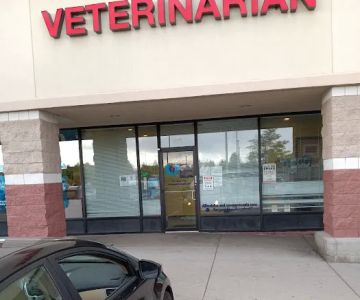How to Care for Pets Recovering from Surgery: Essential Tips for Healing
When your beloved pet undergoes surgery, whether it's a routine spay or neuter, dental work, or a more complex procedure, it’s crucial to provide the right care during their recovery period. Pets, just like humans, require special attention to ensure they heal properly and remain comfortable. As a pet owner, understanding how to support their recovery is key to a swift and successful healing process. Here are some important steps to care for your pet after surgery and help them feel better in no time.

7243 Federal Blvd #150, Westminster, CO 80030, USA
See Details1. Follow Post-Surgery Instructions Carefully
First and foremost, always follow the instructions provided by your veterinarian. They will give you specific guidance based on your pet’s surgery and condition. These instructions may include medication dosages, wound care, and exercise limitations. Skipping steps or not adhering to the recommended schedule could lead to complications. For example, if your vet prescribes antibiotics to prevent infection, it's vital to complete the entire course to prevent the bacteria from returning. Paying attention to these details can significantly impact your pet’s recovery.
2. Create a Comfortable Recovery Space
Your pet may feel disoriented or stressed after surgery, so it’s important to provide them with a calm and quiet space to rest. This area should be free of loud noises and activity to avoid overwhelming your pet. Make sure they have a soft, cozy bed and are kept away from other pets who may inadvertently irritate their recovery process. If possible, keep them in a smaller room where you can closely monitor them. You can add some of their favorite toys or a blanket with familiar scents to make them feel secure.
3. Monitor Their Eating and Drinking
After surgery, your pet’s appetite may decrease temporarily, but it’s important to monitor their eating and drinking habits. If they refuse to eat for more than 24 hours, or if they seem excessively lethargic or weak, contact your vet. It's common for pets to experience a reduced appetite due to anesthesia, but if it lasts too long, it could be a sign of an underlying issue. Offer them easy-to-digest food and ensure they stay hydrated, as dehydration can significantly slow down the recovery process.
4. Administer Medications as Prescribed
Many pets are prescribed pain medications after surgery to help manage discomfort. It's important to administer these medications exactly as directed. If you’re unsure how to give pills or liquids, ask your vet for tips. Some pets may be more sensitive to pain than others, so keeping them comfortable is a priority. Never give your pet over-the-counter painkillers meant for humans, as many of these can be toxic to animals.
5. Keep an Eye on Surgical Wounds
Inspect your pet’s surgical wound regularly to check for any signs of infection, such as redness, swelling, or discharge. While it's normal for the incision to look a bit swollen or have a small scab, any excessive discharge or an open wound should be addressed immediately by your vet. If your pet starts licking or chewing the area, consider using an Elizabethan collar (the "cone of shame") to prevent them from irritating the wound further.
6. Provide Gentle Exercise and Mental Stimulation
While your pet needs rest, they will also benefit from gentle mental stimulation and a bit of light exercise once they begin to feel better. Depending on your pet’s surgery and their vet’s advice, take them for short walks or provide toys that don’t require too much physical effort. Mental stimulation, such as puzzle toys or treats hidden in toys, can also help keep them entertained while they recover.
7. Watch for Signs of Complications
Even with the best care, complications can arise. Be aware of any changes in behavior that might indicate something’s wrong. If your pet is vomiting, has diarrhea, or seems excessively tired or in pain, consult your vet immediately. Early detection of complications can prevent further issues and ensure a smoother recovery.
8. Offer Extra Comfort and Affection
One of the best things you can do for your pet during recovery is to offer extra love and affection. Being there for them during their healing process helps reduce stress and anxiety. Your pet may need some extra cuddles or reassurance that they are safe and loved. Keeping them close to you during their recovery can make all the difference in how they heal both physically and emotionally.
9. Follow Up with Your Vet
After your pet has been discharged from surgery, make sure to follow up with your vet as instructed. This may include check-up appointments to monitor the healing process or to remove stitches. Regular visits are essential to ensure everything is progressing as it should.
Recovering from surgery can be a stressful time for both pets and owners, but with patience and the right care, your pet will soon be back to their happy, active self. If you need further assistance with post-surgery care or have any concerns about your pet’s recovery, don’t hesitate to contact your veterinarian. And if you’re looking for more pet care tips, make sure to visit Hidden Brook Veterinary for expert advice and services.










